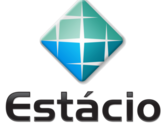Found 6497 spaces (searched "")
Found 6497 spaces
-
WBS-ITPublic space with 1 membersFür uns
-
Div.SistemasPrivate space with 1 membersPrueba con Robert
-
TestxxxPrivate space with 1 memberstest
-
aspacePrivate space with 1 membersیک اسئیس
-
IntranetPrivate space with 1 membersVideo Conferencia a través de la red LAN
-
testplacePrivate space with 1 memberstester
-
ExalcaPrivate space with 1 membersExalca
-
Exalca-MDSPrivate space with 1 membersMDS Demos and Discussions
-
Stats1Public space with 2 membersintroduction to stats
-
Aula InauguralPrivate space with 1 membersEspaço com as conferências de aula inaugural.
-
Eazy CollectPrivate space with 1 membersFor Eazy Company Conferences
-
Conexión UGERDESPrivate space with 1 membersEspacio de Coordinación y Capacitacion
-
Cultiva ACACIAPrivate space with 1 membersEspacio para foros Cultiva ACACIA
-
USSDPublic space with 1 membersEverything related with USSD
-
Principles of t-learningPrivate space with 3 membersIn this space we will discuss and co-develop the key principles of t-learning. This will help to guide how we undertake t-learning research. We will start with a set of initial principles which we will agree on together, and then work with these in situ, and after a time, we will re-visit these based on our experience and reflections, and refine a set of principles of t-learning. To start with, we have these five t-learning principles to discuss and work on. 1) Transgressive learning is a form of transformative learning which means it involves transformations in beliefs, values and points of reference (individual as well as collective). 2) It deals with ‘wicked’ sustainability issues characterized by their complexity. They require multiple perspectives and types of knowledge, constant learning, and adaptations in strategies used to address them. 3) It is characterized by taking an explicitly normative stance, challenging the taken for granted, and that which has become normalized. Descriptors such as critical, reflexive, dialogical, radical, connective, decolonial are often used. 4) This is approached through focusing on uprooting structures of privilege, hegemonies of power, and involves innovative strategies to arrest systemic dysfunction. Methodologies focus of aspects of participation, narratives, activism amongst others. 5) It is grounded in an ethics of caring which balances the ‘warrior pose’ of activism with the ‘empathetic pose’ of vulnerability.









